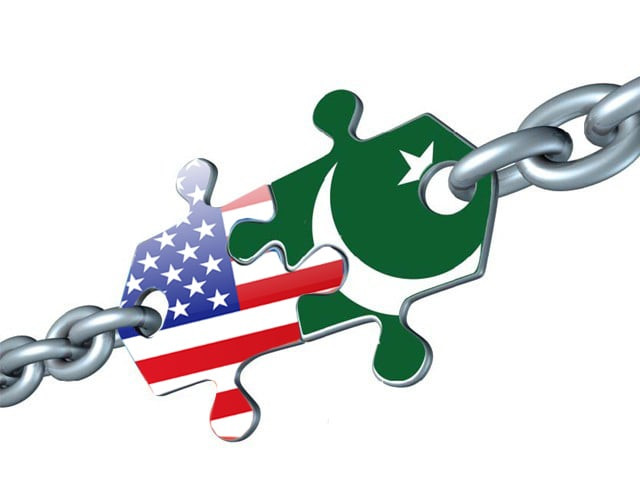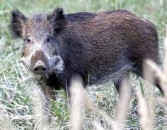Analysis: Attack hands Pakistan a chance to squeeze US
Public fury with America will spur robust response, Pakistan will seek greater say in post-US Afghanistan.

Analysis: Attack hands Pakistan a chance to squeeze US
Fury over the incident at home, where anti-American sentiment runs high, makes it likely that both the army chief, General Ashfaq Pervez Kayani, and the civilian government will play hardball with their ostensible ally, the United States.
"The Pakistan military is clearly very angry at the turn of events and the army's top leadership is under tremendous pressure from middle-ranking offices and junior officers to react," said Hasan Abbas at the US National Defense University's College of International Security Affairs.
That pressure will spur the military to flex its muscles in diplomatic manoeuvring with Washington in the run-up to the exit of US combat troops from Afghanistan in 2014.
Indeed, on Monday, the military's spokesman threatened to drastically reduce cooperation on peace efforts in Afghanistan, which could complicate US President Barack Obama's plans to bring the war there to an end.
Analysts said Pakistan will seek concessions from the United States as its price for Saturday's attack, in which NATO helicopters and fighter jets strafed two military outposts in northwest Pakistan, close to the Afghan border.
The Pakistani military said 24 soldiers were killed and 13 wounded. NATO called it a tragic, unintended incident.
The concessions are likely to include giving Pakistan a greater say in the political settlement to end the war that would cement a role for Islamabad's allies in a future Kabul government.
A year of bust-ups
"From the military's point of view, here is a perfect opportunity to try to go on the offensive for a change," said Kamran Bokhari, vice president for Middle Eastern and South Asian affairs at STRATFOR, a US-based intelligence consultancy.
"The Pakistanis are going to lay their terms out," Bokhari said. "They're going to say ... whatever you're doing on that side of the border, we need more input into that and you need us to get you out of there and provide a safe exit."
The border incident is the latest in a year of bust-ups between Islamabad and Washington – uneasily allied in the war on militancy since the September 11 attacks on the United States a decade ago.
First there was the jailing of a CIA contractor for shooting dead two Pakistanis in the city of Lahore. Then there was the secret US commando raid inside Pakistan that killed al Qaeda leader Osama bin Laden, and then came US accusations that Pakistan was involved in attacks on American targets in Afghanistan.
Pakistan's room for manoeuvre is usually limited by its mutually dependent relationship with Washington, on which it depends for financial and military support.
"Pakistan is in no position to do something that might lead to open hostilities, to war with the US," said Shaukat Qadir, a retired brigadier general and analyst.
But this time Islamabad feels justly aggrieved and has several options to pressure the United States.
Influence with militants
Already since Saturday's incident it has announced that it will review all military and diplomatic ties as well as intelligence sharing, and it has demanded the vacation of Shamsi air base in Balochistan, where some CIA drones used against militants in the tribal areas of Pakistan are reportedly based.
It has also shut down supply routes through Pakistan that account for almost half of the provisions shipped overland to US allied troops fighting in Afghanistan.
Following a similar incident in September 2010 that killed two Pakistani troops, the routes were shut for 10 days.
However, NATO has since pushed to expand a northern route into Afghanistan through Russia and the central Asian countries, which reduces the impact of a blockade through Pakistan.
Pakistan's ultimate leverage lies in its influence over militant groups, especially the Taliban-linked Haqqani network, which pioneered suicide bombing in Afghanistan and has become one of the most serious threats to NATO troops there.
Pakistan has long-standing ties with the Haqqanis stretching back to the war against the Soviet Union in the 1980s, and - despite official denials - it is widely suspected that it still supports them.
After an attack on the US embassy in Kabul in September, the outgoing chairman of the Joint Chiefs of staff, Admiral Mike Mullen, called the Haqqani network a "veritable arm" of Pakistan's intelligence service.
Despite that, in October, US Secretary of State Hillary Clinton publicly called on Pakistan to help include the Haqqanis in peace talks with the Afghan Taliban.
Emboldened by the latest events, Pakistan might actually start leaning more heavily on the network as a proxy guerilla force to further its own interests in a post-US Afghanistan. It almost certainly won't be trying to bring them to the negotiating table.
"I think the message has been conveyed loud and clear," Qadir said. "We're not going to do anything to facilitate anything until this problem is solved."
But there's only so far Pakistan can lean on the Haqqanis. Any attack in the near term by the group against targets in Afghanistan will be seen as retaliation, even if Pakistan didn't have anything to do with it.
Pakistan's been here before. In the 1990s, it was almost labelled by the United States as a state-sponsor of terrorism for its support of militant groups. Such a declaration today would immediately trigger sanctions Pakistan can't afford.
"Right now, the Pakistanis are playing victims," Bokhari said. "Do they want to go from being victims to being accused of sponsoring a terrorist attack on US forces?"



















COMMENTS
Comments are moderated and generally will be posted if they are on-topic and not abusive.
For more information, please see our Comments FAQ